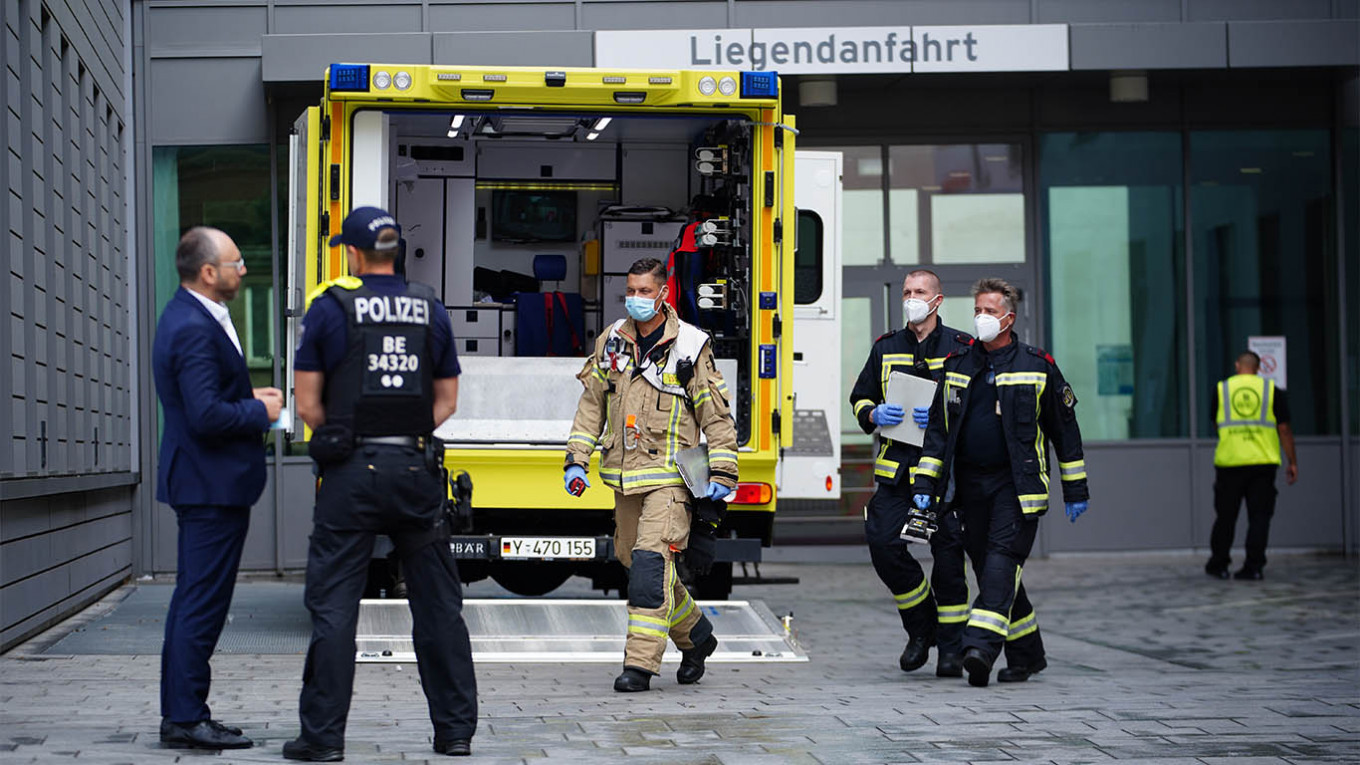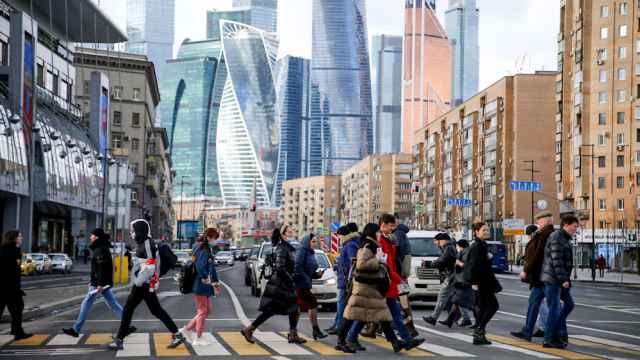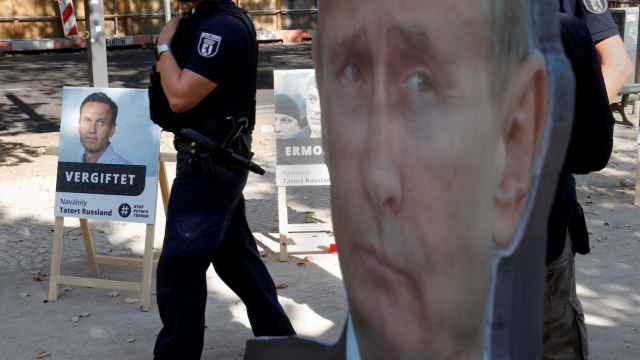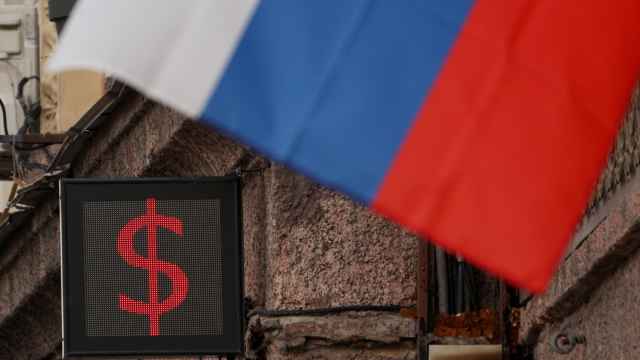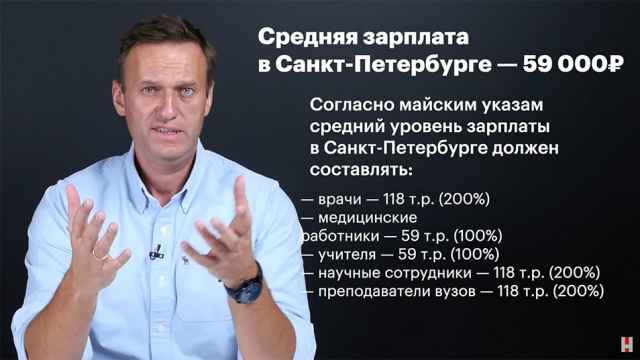Russia’s economy was under pressure Thursday as calls mounted for new Western sanctions over Germany’s revelation that opposition leader Alexei Navalny was poisoned with a Novichok nerve agent.
Berlin’s announcement on Wednesday sent the ruble plunging to its lowest level since the height of Russia's coronavirus epidemic in the spring, and on Thursday morning it was trading at 89 rubles to the euro and 75.4 rubles to the dollar.
At one point Wednesday it fell to 89.8 rubles to the euro, its lowest level since 2016.
The ruble has already lost 20% of its value against the euro and dollar since the start of the year because of the coronavirus pandemic and oil price fall.
Moscow’s RTS stock exchange also fell more than 3% after the German announcement, and by Thursday morning had not recovered its losses.
Western leaders demanded explanations from Moscow after Germany said medical tests on the 44-year-old Kremlin critic had given “unequivocal evidence” that he had been afflicted by military-grade Novichok.
Navalny, one of President Vladimir Putin’s fiercest foes, fell ill after boarding a plane in Siberia last month and was initially treated in a Russian hospital before he was flown to Berlin for specialised treatment.
The incident has prompted calls for new economic measures against Moscow, on top of sanctions targeting whole sectors of the economy in place since Russia's annexation of Crimea in 2014.
New sanctions could drive up consumer prices in Russia, where living standards have already suffered a drop since 2014.
“Russia's relations with the West have once again been poisoned by Novichok,” business daily Kommersant wrote on Thursday, adding it was clear that the European Union and United States were seriously considering new sanctions.
“The main question is, how far will they decide to go?” it said.
A new crisis in relations with the West could also threaten Russia's Nord Stream 2 project, a 10 billion-euro ($11 billion) pipeline near completion beneath the Baltic Sea which is set to double Russian natural gas shipments to Germany.
The project has been delayed for months after Washington moved to impose new sanctions on companies involved in Nord Stream 2, over fears of growing Russian influence.
Germany has voiced anger over the US moves, saying Washington was interfering in its internal affairs.
But the country's biggest newspaper Bild on Thursday called for the project to be ended, saying that “if the [German] government does not stop the construction of Nord Stream 2, we will soon be financing Putin’s Novichok attacks.”
A Message from The Moscow Times:
Dear readers,
We are facing unprecedented challenges. Russia's Prosecutor General's Office has designated The Moscow Times as an "undesirable" organization, criminalizing our work and putting our staff at risk of prosecution. This follows our earlier unjust labeling as a "foreign agent."
These actions are direct attempts to silence independent journalism in Russia. The authorities claim our work "discredits the decisions of the Russian leadership." We see things differently: we strive to provide accurate, unbiased reporting on Russia.
We, the journalists of The Moscow Times, refuse to be silenced. But to continue our work, we need your help.
Your support, no matter how small, makes a world of difference. If you can, please support us monthly starting from just $2. It's quick to set up, and every contribution makes a significant impact.
By supporting The Moscow Times, you're defending open, independent journalism in the face of repression. Thank you for standing with us.
Remind me later.


